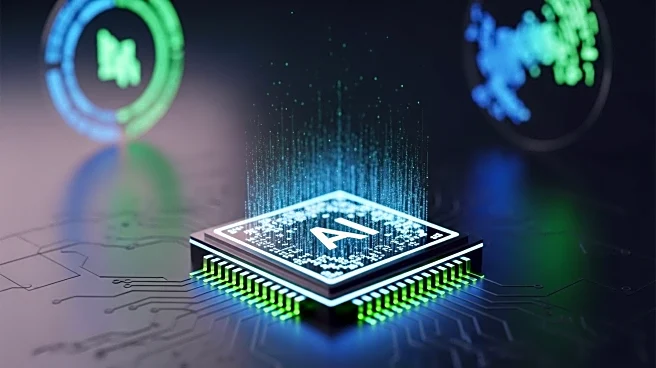What's Happening?
OpenAI and Nvidia have entered into a significant $100 billion agreement, which includes the construction of five new data centers in the United States. This development is part of a broader trend of major technology companies investing heavily in artificial intelligence infrastructure. Concurrently, the Trump administration has introduced changes to the H-1B visa program, including a new $100,000 visa fee. These changes have sparked mixed reactions from tech leaders, with concerns about potential negative impacts on startups, universities, and the U.S. economy. Jeremy Neufeld, director of immigration policy at the Institute for Progress, has highlighted the potential challenges these visa changes could pose to various sectors.
Why It's Important?
The $100 billion deal between OpenAI and Nvidia underscores the growing importance and investment in artificial intelligence technology, which is expected to drive significant advancements in various industries. The construction of new data centers will enhance the U.S.'s capacity to support A.I. development, potentially leading to job creation and technological innovation. However, the changes to the H-1B visa program could hinder the ability of startups and educational institutions to attract international talent, which is crucial for maintaining competitiveness in the global tech landscape. The increased visa fee may deter skilled workers from seeking opportunities in the U.S., impacting the country's position as a leader in technology and innovation.
What's Next?
As the A.I. infrastructure expands, stakeholders will likely monitor the impact of these investments on the tech industry and the broader economy. The visa changes may prompt tech companies and educational institutions to advocate for policy adjustments to ensure access to international talent. Additionally, the tech community may explore alternative pathways to secure skilled workers, potentially influencing future immigration policy discussions. The ongoing developments in A.I. and immigration policy will require careful navigation to balance innovation with economic and social considerations.
Beyond the Headlines
The intersection of A.I. expansion and immigration policy changes raises ethical and cultural questions about the future of work and the role of international talent in the U.S. economy. The reliance on A.I. technology could lead to shifts in labor markets, necessitating discussions on workforce adaptation and education. Furthermore, the visa fee increase may spark debates on the inclusivity and accessibility of the U.S. as a destination for global talent, influencing cultural perceptions and international relations.











